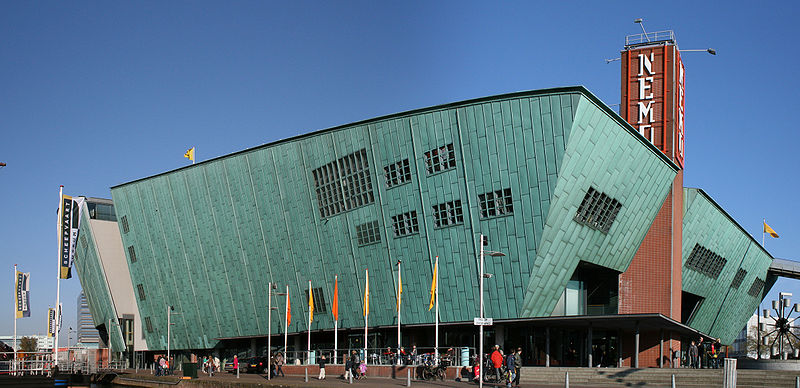
Dr Ewan Fowler, Research Associate in the School of Physiology, Pharmacology and Neuroscience, University of Bristol
The referendum on Britain’s membership of the EU is fast approaching and as the debate intensifies, science is a topic that remains very much overlooked, despite its importance to the UK economy.
I have recently begun to consider the scientific relationship that Britain has with the EU and how UK science may be affected if we choose to leave. This relationship is not trivial, according to OECD figures the EU produces around 1.7 million scientists, which is more than either China (1.5 million) or the US (1.3 million).
To facilitate this each member state contributes towards a fund called Horizon 2020, which the European Research Council (ERC) distributes to research and infrastructure projects. The expected budget of Horizon 2020 from 2014-2020 is over €80bn, an increase from the previous incarnation called Framework Programme 7 which had a budget of €53bn from 2007-2013. For projects involving international collaborations a single application to the ERC is required removing the need for separate applications to national funding agencies.
The UK received €8.8bn under Framework Programme 7 from 2007-13, amounting to 3% of total research spending. This may seem small however it is just shy of charity-funded research (5%) and is typically viewed as a main source of funding for biomedical research. The UK is highly competitive in obtaining funding as it is currently awarded the greatest number of grants under Horizon 2020, and achieved the second greatest number under Framework Programme 7.

Credit – JISC, Creative Commons
Early career fellowships from the ERC are typically awarded for research conducted over several different nations. This attracts talented young scientists and assures the future of UK science. In line with this, a recent UNESCO report found we have the highest number of non-national grant awardees conducting ERC-funded research in the UK.
Free movement of scientists between the UK and EU is therefore greatly beneficial to both. As a newly qualified postdoctoral researcher working in biomedical sciences, I shall discuss my views on the EU referendum and the implications of the vote for the scientific community, focusing on my personal experience.
Freedom of movement is crucial for collaborative science
I personally have benefited from institutions within the EU which have funded research visits within and outside the EU. The first of these opportunities came during my PhD when I was awarded a travel grant from the German pharmaceutical company Boehringer Ingelheim. The purpose of this scheme was to advance European biomedical research and accordingly it was open to EU scientists, or non-EU scientists with projects in the EU. With this grant I travelled to Amsterdam to conduct a two month research project.
The practicalities of travelling to the Netherlands were simple as I didn’t need a visa or expensive health insurance as I was covered by my European Health Insurance Card (EHIC). This allowed me to focus on my research and gathering data for publication. In fact most of my publications feature co-authors from one or more EU country, whereas only one has US collaborators. This is typical of EU scientists as Europe publishes over one third of all scientific articles and, according to UNESCO findings, the UK publishes more papers with German, French, Italian or Dutch collaborators than it does with the US.
During my time in the Netherlands I mixed with Dutch, Portuguese, German, Italian and French scientists and was struck by their camaraderie and overall positivity. Perhaps this had something to do with the timing of the visit, coinciding as it did with the Netherlands making it to the semi-finals of the 2014 World Cup and coming first runner-up in the Eurovision Song contest!

NEMO science museum, Amsterdam, part of the largest science centre in the Netherlands. Credit S Sepp, Creative Commons.
I was also awarded funding from the European Society of Cardiology to work in the United States. However this required a lot more planning and organisation due to requirements for things such as a J1 work visa and healthcare insurance. These can be costly and time-consuming, involving a trip to the US embassy in London, while the cost of health insurance alone left little of the grant for travel or accommodation. After this experience I was grateful for our right to travel through Europe without the need for work visas as it removes an additional layer of bureaucracy to contend with.
There are many other opportunities available to students each year which can positively impact their learning and future prospects, such as the Erasmus exchange programme. At the time of writing, in my lab in Bristol we also have two French postgraduate students on an exchange program for several months who are making valuable contributions to the lab.
Referendum on UK membership of the EU
Polls indicate the majority of researchers support remaining part of the EU and fear UK science would suffer as a result of leaving, however there are some who support leaving the EU and channelling our net contribution to the EU into research. Personally I think were a Brexit to happen, during the scrabble for these redistributed funds research would inevitably wind up low in the pecking order behind welfare, the NHS and education.
However if Brexit occurred that would not necessarily mean an end to EU science funding, as non-EU countries which contribute to Horizon 2020 can still be awarded ERC grants (Norway and Switzerland are two such examples), however they are not part of discussions shaping funding priorities.

Main Control Room / Mission Control Room of ESA at the European Space Operations Centre (ESOC) in Darmstadt, Germany. Credit – ESA Jurgen Mai
The greater budget and shared responsibility of Horizon 2020 may confer relative stability to funding in the long term, thus preventing a dip were another financial crisis to occur. When these events occur they can result in a brain-drain, particularly of early career postdoctoral researchers such as myself. This happened in 2010 when the UK science budget was frozen at £4.6 billion; in contrast the budget for ERC ‘Starting Grants’ was increased by 25% to €661 million in 2011.
In conclusion
Cooperation between nations in projects such as CERN and the European Space Agency will be vital to making important technological discoveries in the future. The hypothetical financial outcomes of leaving or remaining in the EU are entirely at the mercy of post hoc negotiations and are thus irrelevant. I think the ‘soft’ benefits of EU membership positively influence biomedical science in the UK.
The views expressed here are personal views and do not reflect the views of the funders of our research or of PolicyBristol.
